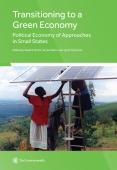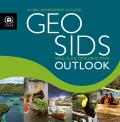This report provides an assessment of existent and potential green jobs in major economic industries of a small island developing state: Mauritius. It aims to inform and shape the Maurice Île Durable (MID) project, which was launched in 2008 with the objective to make Mauritius a world model of sustainable development.

While the term ‘green economy’ has been widely used at the international level, very little information exists about what the concept looks like in practice. It remains to be explored what policies are required, and what the challenges of implementation at national level are.
This book contains case studies from eight small states that have committed publicly to greening their economies: Botswana, Grenada, Guyana, Jamaica, Mauritius, Nauru, Samoa and Seychelles. It provides insights into the success of various initiatives and highlights how small states themselves are making practical progress on a green economy approach.

This report examines the diverse realities of Small Island Developing States (SIDS) through an integrated approach. While SIDS have bountiful supplies of renewable resources and unique cultural assets, they often face daunting challenges resulting from isolation and remoteness coupled with climate change, natural disasters, and out-migration. Furthermore, global financial shocks and increasing fuel and food prices are threatening core economic sectors such as tourism.
Built on combinations of realistic outlooks, this report develops an ensemble of four island-centric futures: the blue-green economy; technology leapfrogging; priority to island community and culture; and reconnecting with nature, to help individual states consider policy choices that best respond to their needs. This report shows that there is much that SIDS can do proactively to anticipate environmental problems and their economic consequences or even avoid them through innovative planning and action.
This report summarises the outcomes of the joint AfDB-OECD workshop, titled Enabling Green Growth in Africa, hosted by the Government of Zambia in Lusaka on January 15-16, 2013 and another two-day workshop on Strategic Environmental Assessments (SEA) and Green Economy that follows, organised by the OECD DAC SEA Task Team. The objective of the workshops was to facilitate an exchange of perspectives between regional member countries (RMCs) and development partners; and to explore the rationale and enabling environment for green growth in Africa through, notably, the sharing of country experiences. The report highlights how the outcomes of the two workshops will inform current and future green growth work in both organisations.
Fiscal instruments are potentially among the most effective, and cost-effective, options for addressing externalities related to poor air quality, urban road congestion, and greenhouse gases. This paper takes a case study, focused on Mauritius (a pioneer in the use of green taxes) to illustrate how existing taxes, especially on fuels and vehicles, could be reformed to better address these externalities. We discuss, in particular, an explicit carbon tax; a variety of options for reforming vehicle taxes to meet environmental, equity, and revenue objectives; and a progressive transition to usage-based vehicle taxes to address congestion.
